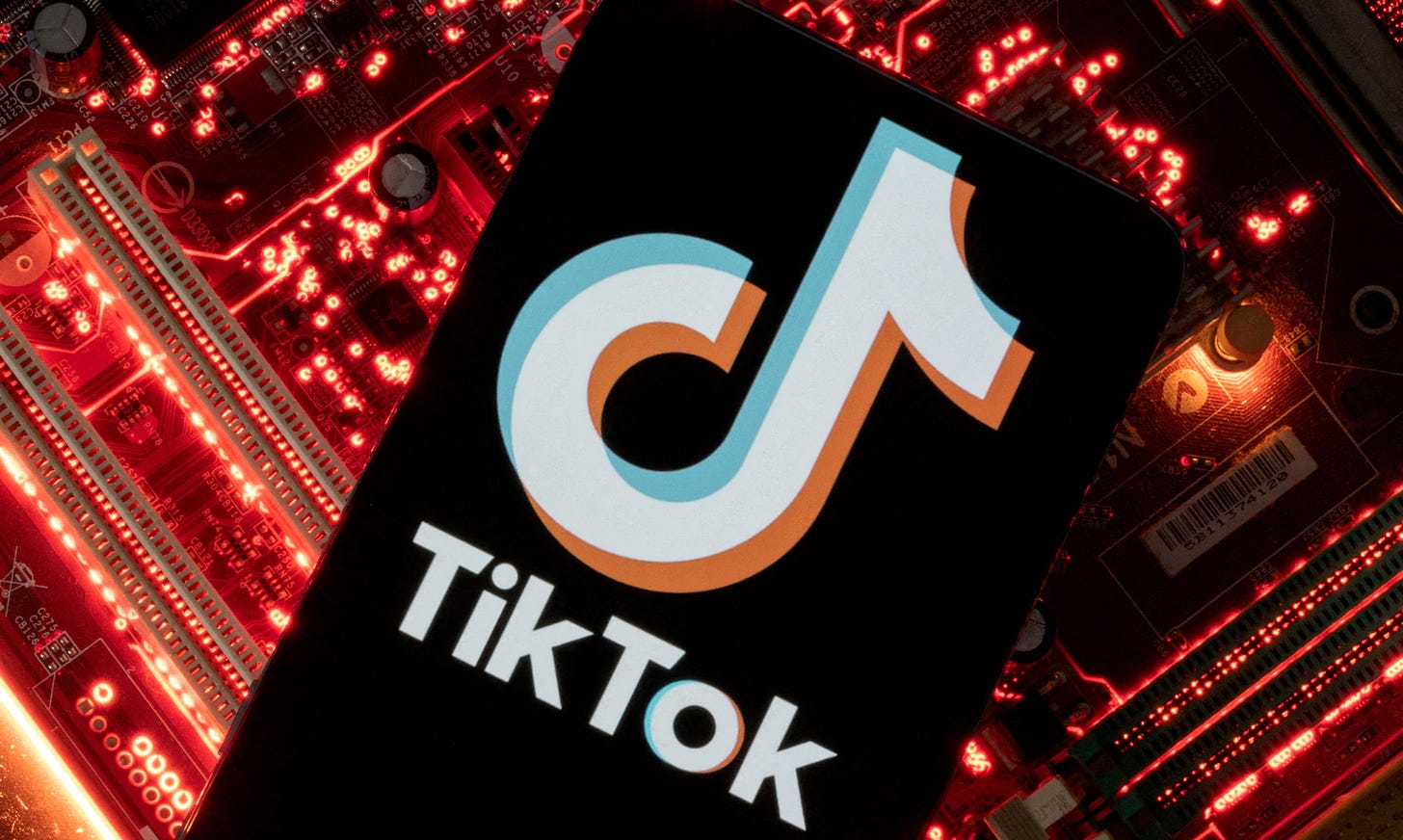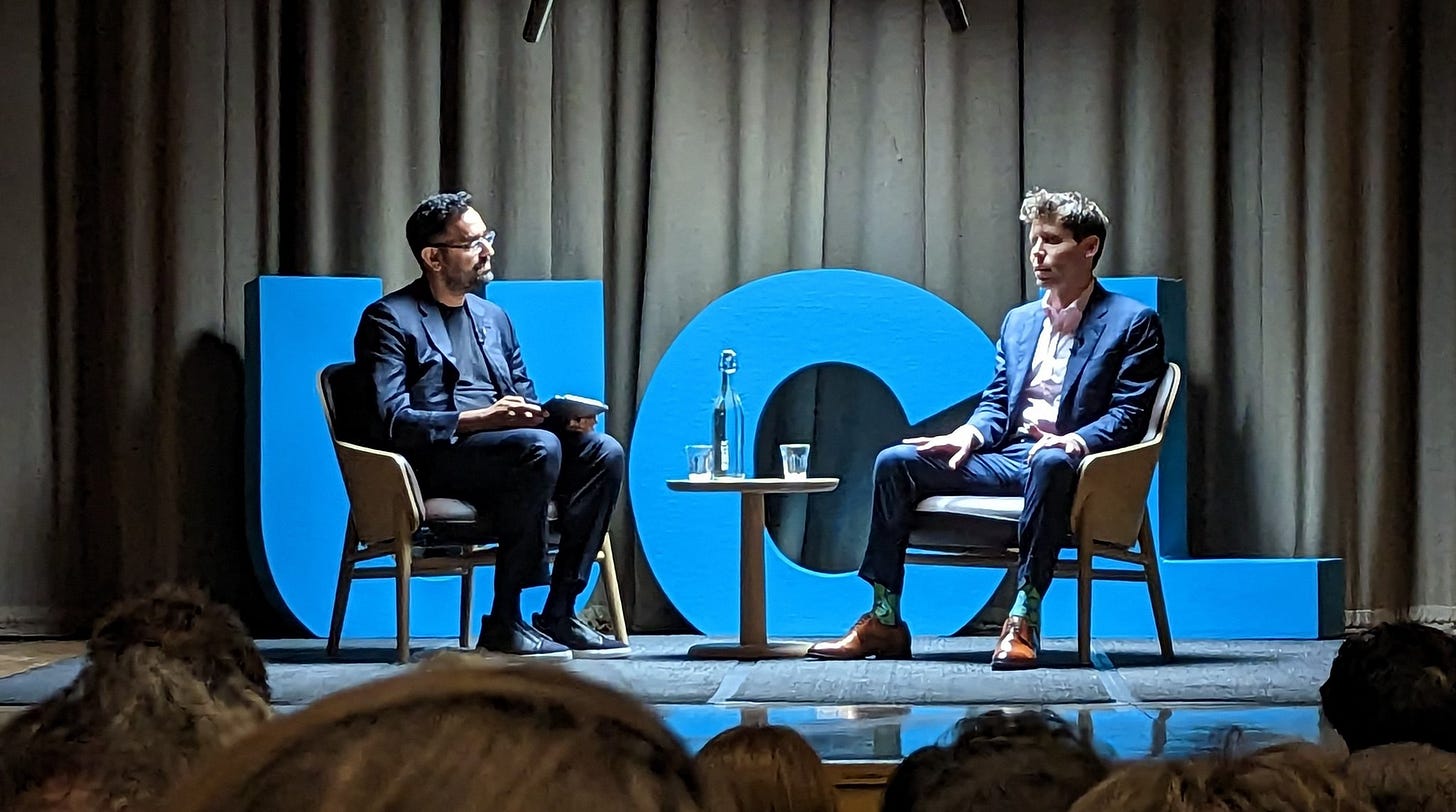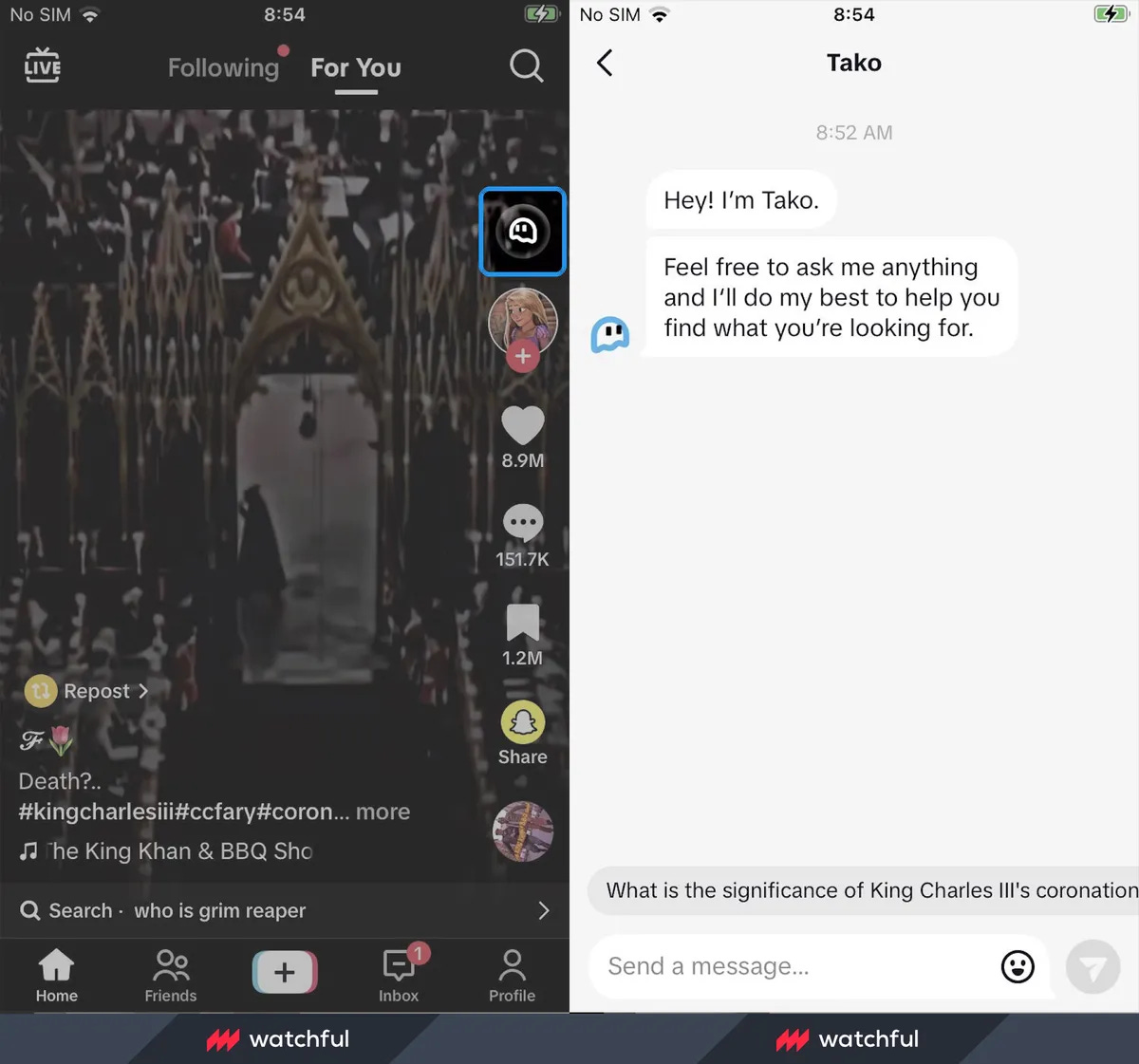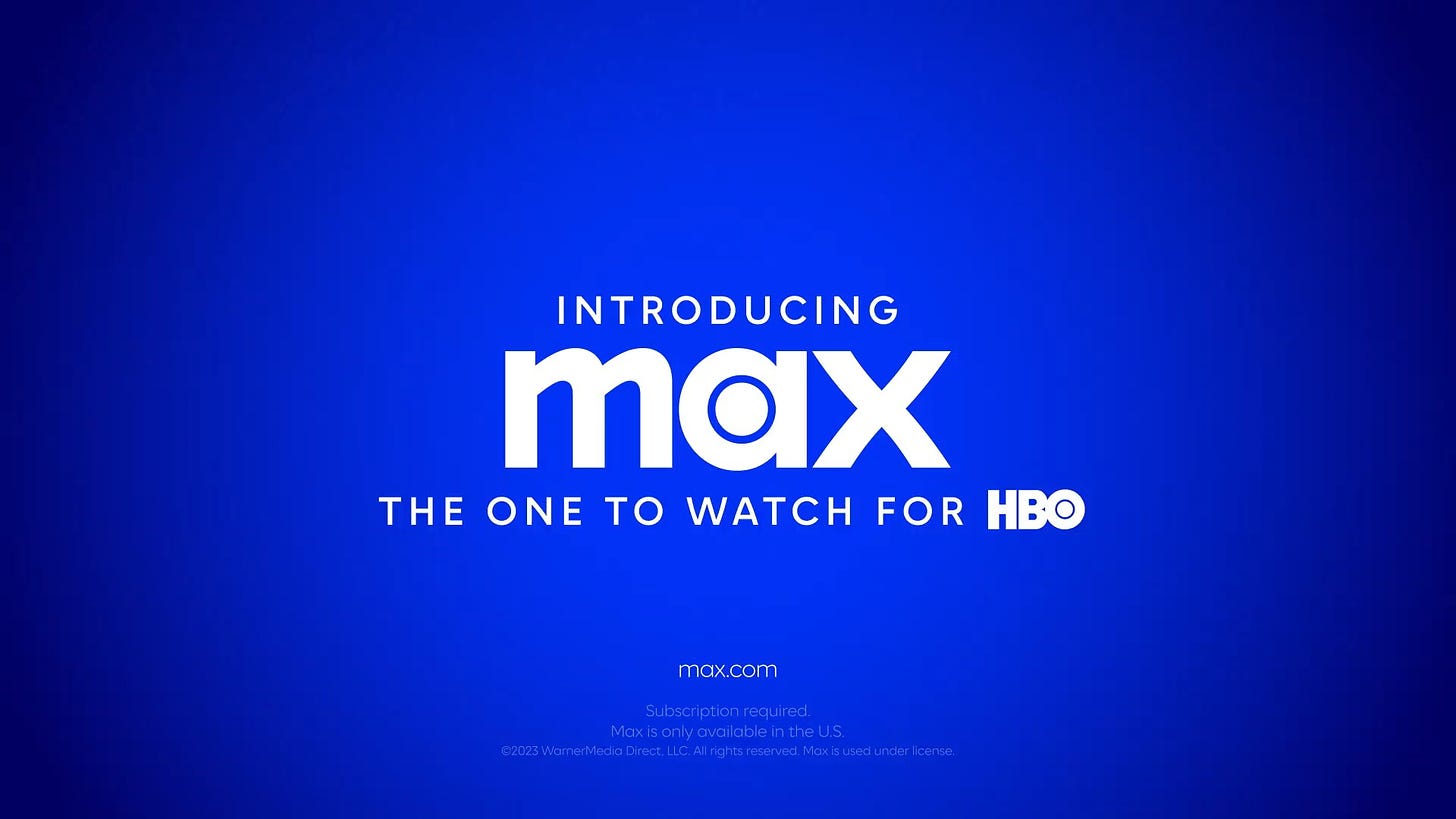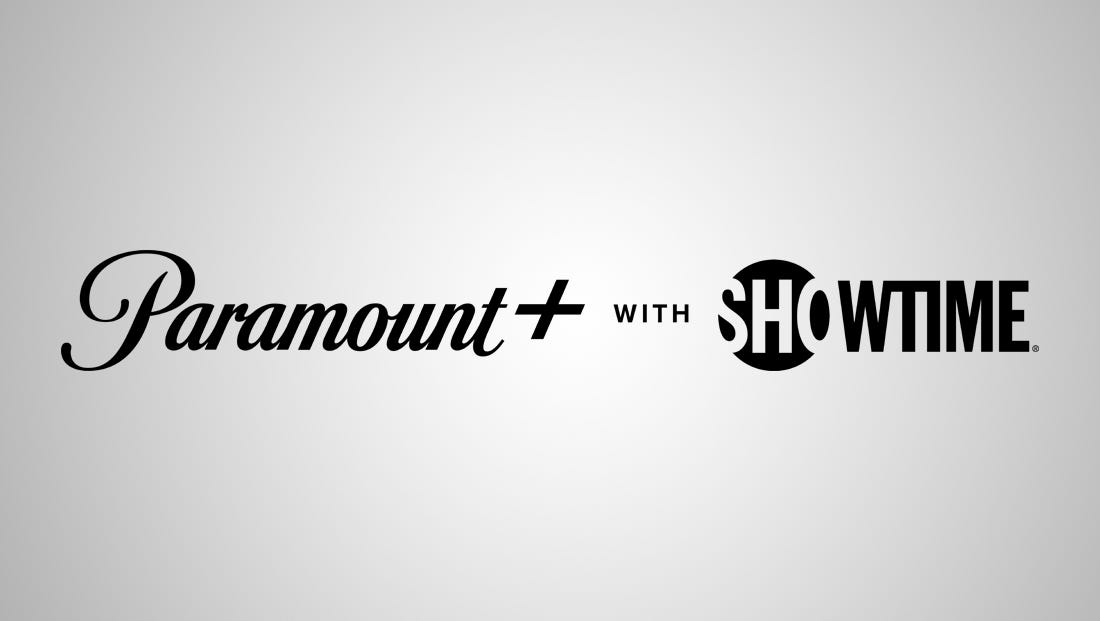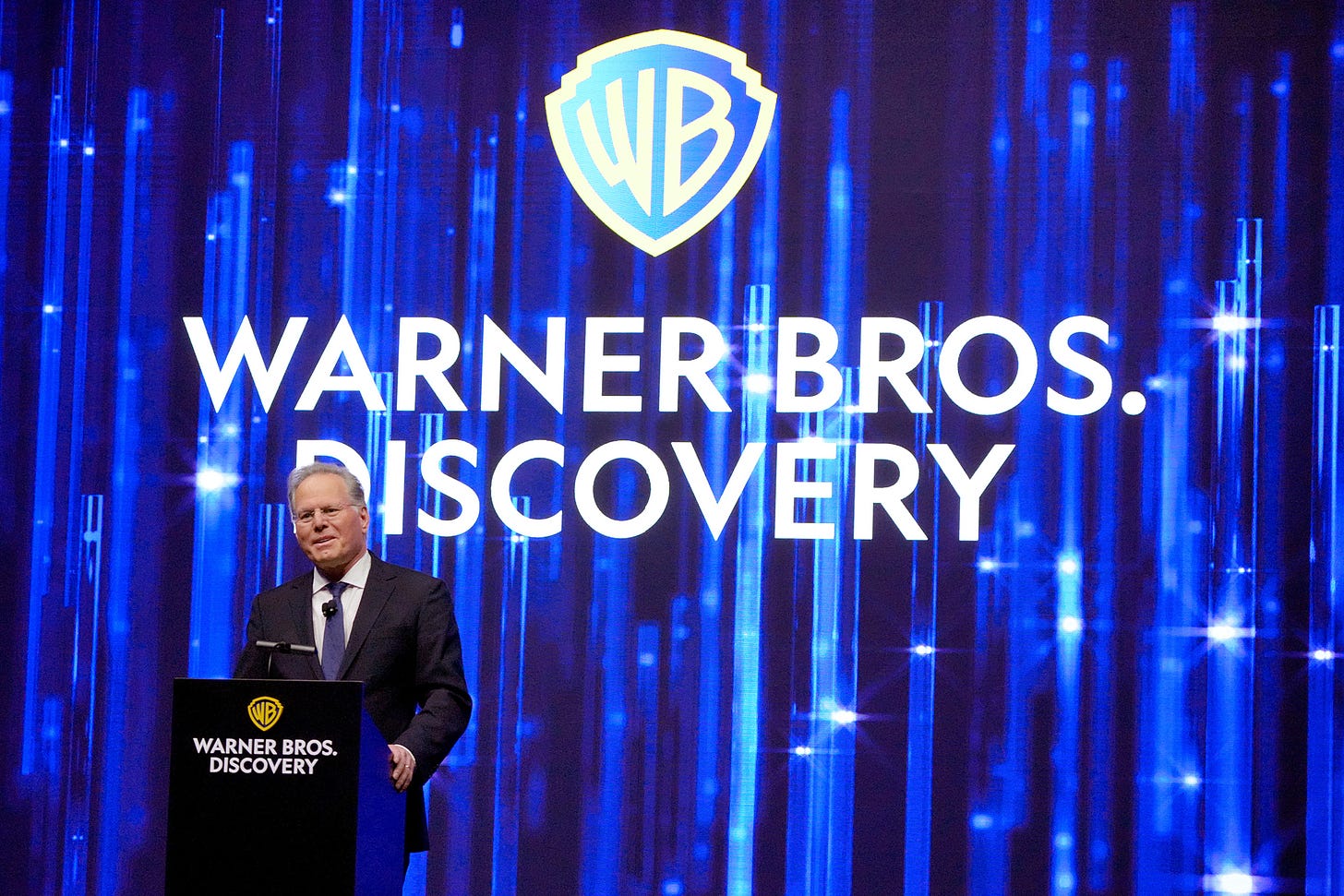Stuff Worth Knowing for the Week of May 22, 2023
TikTok sues Montana, OpenAI waffles on regulation, and Sony announces Project Q.
Welcome back to Stuff Worth Knowing! Each week, I'll round up news related to tech, video games, film, television, anime, and more. I’ll probably also start using Substack for more short-form thoughts once Substack Notes launches. At the same time, I’m going to be using my Patreon, SavePhile, more often.
Tech ⌨️
TikTok Sues Montana Over Unconstitutional Ban
Last week, Montana Governor Greg Gianforte signed SB 419, a bill focused on banning video streaming app TikTok. The law will go into effect in January 2024, levying heavy fines on app stores that host TikTok and the company itself if its app remains available in the state. This week, TikTok filed a lawsuit against the state.
“We are challenging Montana’s unconstitutional TikTok ban to protect our business and the hundreds of thousands of TikTok users in Montana. We believe our legal challenge will prevail based on an exceedingly strong set of precedents and facts,” a TikTok spokesperson told The New York Times.
TikTok contends that Montana is unfairly targeting the company for user data collection in a manner similar to other apps and the state lacks any real evidence that U.S. user data would end up with the Chinese government. The company also says the state doesn’t have the authority to impose a ban upon it; the ban violates the Commerce Clause of the U.S. Constitution and any national security issues would be under the federal government.
Why It's Worth Knowing: Everyone is looking at Montana’s ban against TikTok. It’s another example of several conservative legislatures testing out the broad scope of their powers, like Florida’s book bans. TikTok’s lawsuit against Montana joins another lawsuit filed against the state by several TikTok creators. Legal analysts don’t believe the lawsuit will stand, but it still has to go through the courts.
Meta Fined $1.3 Billion Over Data Protection Violations in the EU
Speaking of companies transferring user data to a different country, Meta was fined €1.2 billion ($1.29 billion) by Ireland’s Data Protection Commission (DPC) for violations of General Data Protection Regulation (GDPR) regulations. The ruling was handed down on Monday, alleging that Facebook was transferring the user data of EU citizens to the United States. Meta has five months to stop sending Facebook EU data to the U.S. and six months to cease handling previously-obtained data.
Last year, Meta said that it might shut down Facebook and Instagram in Europe over the data-sharing regulations. In response to this week’s ruling, Meta said that it was “disappointed to have been singled out when using the same legal mechanism as thousands of other companies looking to provide services in Europe.”
Why It's Worth Knowing: It’s a pretty big fine, but it’s also a tiny bit of Meta’s profits. It likely won’t change the company’s data handling procedures. In the near term, Meta and others are looking toward the upcoming EU-U.S. Data Privacy Framework, which is meant to handle the transfer of data between the two countries. Of course, that agreement could be challenged by EU courts and regulators.
Minnesota Signs Right-To-Repair Law
Continuing our line of semi-related stories, Minnesota Governor Tim Walz signed a right-to-repair bill into law on Wednesday. The law forces electronics and equipment manufacturers to allow consumers to buy parts and tools to repair their equipment. It also allows independent repair shops to do the same. The Verge reports that the law takes effect on July 1, 2024 and covers products sold on or after July 1, 2021.
Repair blog iFixit touted the larger scope of the new law in a blog post. “The bill, signed today by Governor Walz, applies to all electronics, with a handful of cherry-picked exceptions—no farm equipment, video game consoles, specialized cybersecurity tools, motor vehicles, or medical devices,” wrote iFixit Director of Sustainability Elizabeth Chamberlain. “If it’s got electronics and it’s not on the pretty small list of exclusions, manufacturers have to provide all Minnesotans the same parts, tools, and documentation they make available to their own repair providers.”
The law also states that manufacturers must make all repair and service documentation freely available. This means folks wanting to repair equipment who live outside of Minnesota should also be able to access this documentation.
Why It's Worth Knowing: Right-to-repair has been a growing issue for some time, especially in regards to agriculture. In the past few years, farm owners have had to deal with DRM on their farm equipment that prevents them from repairing the gear without accessing onboard computers. Sadly, farm equipment was carved out of the final bill, so Minnesotan farmers still have no way to fix their tractors and the like.
Right-to-repair has also been an issue with smartphones, with companies like Apple preventing owners from making simple repairs to their devices. Apple also forces repair shops to be certified—a paid process—in order to gain access to the necessary parts.
In additional Minnesota news, the state Senate passed a bill that gives Uber and Lyft drivers a minimum wage and other benefits. According to The New York Times, Governor Walz said that more conversations are needed before he signs it.
This Week In Twitter: Ron DeSantis Announces His Presidential Run on Twitter
On Wednesday, Twitter hosted the announcement of Florida Governor Ron DeSantis’s 2024 presidential campaign. The announcement came in a Twitter Space hosted by owner Elon Musk. Unsurprisingly given Musk’s firing of so many of the company’s staff, the Space ran into problems almost immediately. There was significant feedback noise, poor sound, and several connection issues.
David Sacks, a Musk favorite and former PayPal product lead, called the Space the “biggest room ever held on social media.” The New York Times shot back, stating that DeSantis’ Space had only 300,000 concurrent listeners and 3.4 million views within 24 hours. Apparently, it was dwarfed by two BuzzFeed employees putting rubber bands around a watermelon on Facebook Live. Even Musk’s own recent interview on Twitter Spaces by a BBC reporter did more, with up to 3.3 million concurrent viewers. Suffice it to say, the DeSantis Space was an abject failure.
While Musk failed to make Twitter Spaces into the center of the conversation, he did net a win this week. The Food and Drug Administration (FDA) approved Neuralink’s first human clinical study. On the company’s official Twitter account, it stated that recruitment was not open for the trial. Neuralink’s aim is to create a high-bandwidth interface to the brain. I wouldn’t put that power in the hands of Elon Musk, but here we are.
AI 🤖
OpenAI Argues For U.S. Regulations, But Balks at EU Regulations
On Monday, OpenAI posted an article on its official website arguing for extensive regulation of artificial intelligence. This follows statements made by OpenAI CEO San Altman to Congress last week.
“Any effort above a certain capability (or resources like compute) threshold will need to be subject to an international authority that can inspect systems, require audits, test for compliance with safety standards, place restrictions on degrees of deployment and levels of security, etc,” said the statement from OpenAI. “But the governance of the most powerful systems, as well as decisions regarding their deployment, must have strong public oversight. We believe people around the world should democratically decide on the bounds and defaults for AI systems.”
At a separate event this week however, Altman stated he had concerns about pending AI regulation being created in Europe. The EU AI Act has significant rules around “high-risk” AI models, a category that includes OpenAI’s CPT-4.
“Either we’ll be able to solve those requirements or not. If we can comply, we will, and if we can’t, we’ll cease operating… We will try. But there are technical limits to what’s possible,” said Altman, according to Time.
Part of the EU AI Act would also require creators of large language models to provide summaries of copyrighted data used for training. This could open companies up to legal battles, like Getty Images’ lawsuit against Stability AI. Despite originally being open with such data, OpenAI stopped those disclosures once it became more commercial in nature. Altman stated that he hopes to have regulations that sit in-between the U.S. and EU models.
Google Showcases Generative AI For Advertising
Google’s biggest moneymaker has always been its ad business. Every time you do a search on Google, it serves up a number of ads and companies pay big money to be at the top of every search result. While ads haven’t been a big part of Google’s recent AI push yet, that’s about to change.
On Tuesday, Google showed off Product Studio, a new tool that will help businesses make ads using generative AI. Product Studio allows businesses to start with a single image of their product and create new product backgrounds, remove items from the background, or increase image resolution.
Google still has yet to add advertising to its new Search Generative Experience, which uses the company’s PaLM 2 model to generate search answers. This week, Google opened the service, currently in testing, to more users. Once it has a new AI Search experience that works, Google will likely start figuring out how to include advertising.
TikTok Testing AI Chatbot For Video Recommendations
While it deals with a statewide ban, TikTok is also testing its own AI chatbot. The AI model, called Tako, can recommend videos to users depending on what they ask for. The Verge got a glimpse of the chatbot test, which shows a tiny icon that looks like a ghost, sitting just above the Profile icon on the app. By tapping on this icon, users can ask the chatbot questions and receive video recommendations.
TikTok’s official Communications Twitter account confirmed that the feature was in limited testing. “We're in the early stages of exploring chatbot tools with a limited test of Tako with select users in the Philippines. Tako is an AI-powered tool to help with search and discovery on TikTok,” says the tweet.
Blizzard Entertainment Toying With Generative AI for Concept Art
Apparently, Blizzard Entertainment is testing out its own generative AI tools for game development. The story comes from Shannon Liao, former writer for Washington Post’s non-defunct Launcher vertical, in her debut on The New York Times. (Yay!) The report states that the company is working with Blizzard Diffusion, a generative AI tool aimed at making new concept art.
“Prepare to be amazed. We are on the brink of a major evolution in how we build and manage our games,” said Blizzard chief design officer Allen Adham in an email obtained by the NYT.
Blizzard Diffusion is being used to create concept art for game environments, characters, and character outfits. The company is also toying with tools for procedural level design, autonomous in-game NPCs, and AI assisted voice cloning. Basically, Blizzard is just throwing AI at anything in the hopes that just using the tech will sound great to the money men. Former WoW employees contend that’s pretty much the case.
“Leadership’s focus on A.I. doesn’t feel like it is solving a problem that individual contributors care about,” former World of Warcraft engineer Valentine Powell told the NYT. “It feels like ignoring their problems and focusing on hype words that they think will sound impressive to shareholders.”
Why It's Worth Knowing: Shannon’s story is absolutely worth reading. While the focus is on Blizzard Entertainment, it’s really a report on the game industry turning to AI for content creation. Some tout the use of the technology to take care of boring busywork, while others lament the loss of creativity and jobs. The problem, as always, isn’t the technology, it’s the people at the top. Rather than using these as augmentative tools, many executives likely see them as full-on replacements for certain employees.
Video Games 🎮
Microsoft Offers Details in Its CMA Appeal
It’s been a month since the UK’s Competition and Markets Authority (CMA)’s decision to block Microsoft’s acquisition of Activision-Blizzard. Microsoft has finally offered its arguments for appeal. There are a total of five arguments in the appeal document.
The first is that the CMA made an error in treating cloud gaming as a separate market for the traditional gaming market. (I actually somewhat agree with this argument.) Second, Microsoft argues that the CMA failed to take into account Microsoft’s growing cloud gaming agreements, many of which were made purely so regulators would okay the deal.
Third, Microsoft feels that the CMA’s assumption that Activision-Blizzard would make its games available on cloud gaming platforms without Microsoft’s controlling interest is in error. This leads into the fourth argument, which is that Microsoft would not have the ability and incentive to stymie rival cloud gaming services by withholding Activision games.
In its final argument, Microsoft attacks the basis of the CMA’s investigation. Microsoft says the CMA “erred in law by proceeding on the basis that it had a duty to impose what it described as a comprehensive remedy, thus failing to consider a range of remedies and assess their benefits and detriments in the round.”
Why It's Worth Knowing: Microsoft has gained approvals in other regions, but significant blockers in the U.S. and UK have the Activision-Blizzard deal in peril. In both cases, Microsoft has a lengthy legal battle ahead of it. In the case of the CMA appeal, the process will take months. Even if the appeal is successful, the CMA will have to re-review the deal, which could land Microsoft back where it is right now.
Sony Announces PlayStation Streaming Handheld Project Q
Sony Interactive Entertainment showed off a number of upcoming games at its PlayStation Showcase 2023 this week. These titles included Marvel’s Spider-Man 2, Final Fantasy XVI, Assassin’s Creed Mirage, and Alan Wake II, alongside live-service games like Marathon and Fairgame$. More importantly though, Sony signaled a stronger push in cloud gaming.
The company revealed a new PlayStation-branded handheld called Project Q. The device, which looks like a screen crammed in-between a DualSense controller, will allow users to stream games from their PlayStation 5 console.
A number of questions remain, however. Sony did not provide a release date or price for the device. At a higher price point—above $200, I’d say—it’s unlikely that consumers would be willing to pay for a device that’s purely for streaming games from a PS5.
Also, PS5 Remote Play is already available on PC, Mac, iOS, and Android. The latter devices are already portable and have other uses to consumers. I can use an iPad for drawing and productivity, or catch up on social media on my Android phone. Project Q only has a single use. So what is the aim of Project Q? It’s honestly a bit perplexing.
The announcement comes a day after statements made by Sony Interactive Entertainment President Jim Ryan during a Sony Business Segment Meeting. “Unfortunately, today is not the place for me to disclose these plans, but we do have some fairly interesting and quite aggressive plans to accelerate our initiatives in the space of the cloud that will unfold over the course of the coming months,” said Ryan.
Why It's Worth Knowing: It’s clear Sony sees cloud gaming as one mark of the future. The company has been working on game streaming for a very long time, acquiring Gaikai way back in 2012. Since then, PlayStation has had a number of cloud services, including PlayStation Now and Remote Play, but none of them have wildly taken off. Project Q doesn’t feel like the answer to me, but I’m not a highly paid executive.
Naughty Dog Delays The Last of Us Factions Multiplayer Game
The Last of Us Part II launched on PlayStation 4 three years ago, back on June 19, 2020. At the time, developer Naughty Dog was also working on a forthcoming multiplayer add-on called Factions. Two years later, director Neil Druckmann revealed that Factions would now be a standalone multiplayer game, with more information coming in 2023.
Well, it’s 2023 and Naughty Dog has announced that Factions has been delayed. "We know many of you have been looking forward to hearing more about our The Last of Us multiplayer game. We're incredibly proud of the job our studio has done thus far, but as development has continued, we've realized what is best for the game is to give it more time. Our team will continue to work on the project, as well as our other games in development, including a brand new single-player experience; we look forward to sharing more soon,” said Naughty Dog in its statement.
This news was followed by a Bloomberg report, which stated that Sony brought in Bungie to take a look at Factions. After a review process, Bungie doubted that Factions would keep players engaged long-term. Now many of the developers have been reassigned to other projects within the studio, though the multiplayer title has not been canceled.
Film, Television, and Streaming 🎞️
Warner Bros. Discovery Promises To Fix Max Credit Problems
When Warner Bros. Discovery’s newly-merged streaming service Max launched this week, users noticed a change in its crediting process. Instead of having multiple credit fields, many of the major staff on shows and films were listed under “Creators”. This led to directors, writers, and producers all being lumped into a single field. The major Hollywood guilds were not happy about the change.
“Warner Bros has lumped writers, directors and producers into an invented, diminishing category they call ‘Creators.’ This is a credits violation for starters. But worse, it is disrespectful and insulting to the artists that make the films and TV shows that make their corporation billions,” WGA West president Meredith Stiehm said in a statement obtained by Variety.
“Warner Bros. Discovery’s unilateral move, without notice or consultation, to collapse directors, writers, producers and others into a generic category of ‘creators’ in their new Max rollout while we are in negotiations with them is a grave insult to our members and our union,” said DGA president Lesli Linka Glatter.
Why It's Worth Knowing: This is a problem for Warner Bros. Discovery because there’s currently a Writers’ Strike going on, and The Directors Guild of America (DGA) and The Screen Actors Guild - American Federation of Television and Radio Artists (SAG-AFTRA) are currently in the middle of negotiations for their upcoming contract renewals. SAG-AFTRA’s board has already voted to ask its members for strike authorization. The Max crediting situation risks pissing off the unions, which is why WBD was so quick in responding.
“We agree that the talent behind the content on Max deserve their work to be properly recognized,” a Max spokesperson said in a statement to Variety. “We will correct the credits, which were altered due to an oversight in the technical transition from HBO Max to Max and we apologize for this mistake.”
A Deadline story tries to blame this issue on WBD IT employees, who allegedly made the change without executive input. That story doesn’t really pass the smell test, however, or if it does, one wonders what WBD’s executives are getting paid for. Not a single one of them took a look at rough drafts for Max? Doubtful.
Paramount Launching Merge Streaming Service On June 27
As Warner Bros. Discovery struggles with the launch of Max, Paramount is planning its own merged service. Paramount will soon launch the aptly-named Paramount+ with Showtime, bringing together Paramount+ and Showtime. Paramount decided that Showtime would no longer be a standalone brand earlier this year.
The new service will cost $11.99 per month. Paramount+ without Showtime, which is not called that, will cost $5.99. This is the second rebrand of Paramount’s streaming offerings, as Paramount+ used to be called CBS All Access.
Netflix Cracks Down on Password Sharing
After months of threats, Netflix has finally started its crackdown on password sharing. This week, the streaming service started emailing users who share their accounts outside of a single household, asking them to pay for a family sharing add-on. The price is $7.99 per month for each additional household on an account; standard accounts can add a single account, while premium 4K accounts can add two additional users.
Netflix is not penalizing those who share their accounts. Instead, it will simply prevent the additional users from being able to stream. The move comes as Netflix is looking for additional methods to increase profitability. Will the move work, or actually push users away from the service?
Layoffs 👷
Warner Bros. Discovery Will Have Another Round of Layoffs
Warner Bros. Discovery is expected to lay off more TV employees this summer, according to Deadline. The layoffs are expected to affect the cable TV business, with both on-air and behind-the-scenes employees being impacted. WBD’s TV business includes the Discovery Channel, TLC, Investigation Discovery, Science Channel, Animal Planet, Food Network, HGTV, TNT, TBS and truTV. (You can find all of it on Max, somehow.)
For the first quarter of 2023, Warner Bros. Discovery reported total revenue of $10.7 billion, down slightly year-over-year. The company reported a net loss of $1.07 billion, a larger loss than the same quarter the previous year.
Relic Entertainment Lays Off 121 Staff
This week, Sega announced that it will be laying off 121 employees at Relic Entertainment. The layoffs are apparently part of a restructuring effort at Sega. They follow Relic’s recent launch of Company of Heroes 3 on PC in February, with an upcoming console launch.
"At a time where external factors are impacting our industry more than ever, the difficult decision to restructure has been made to ensure that maximum focus can be placed on Relic's core franchises,” said Relic in a statement. “"Sega is in a healthy financial position and remains fully committed to supporting and investing in Relic Entertainment and the franchises it is responsible for, including the critically acclaimed Company of Heroes series.”
The Entertainment Contents division of Sega Sammy reported income of 41.1 billion yen ($292 million), up year-over-year.
On My Mind 🧠
Tina Turner Dies: This week, the Queen of Rock ‘n’ Roll passed away at the age of 83. Just an amazing artist and voice, who unfortunately had to go through a ton of hardships in her life. I’m glad she lived a long one. She had a ton of amazing singles, but I’ll offer up “We Don’t Need Another Hero” from Mad Max Beyond Thunderdome, a movie where Turner also played the amazing Auntie Entity. Rest in peace, queen.



